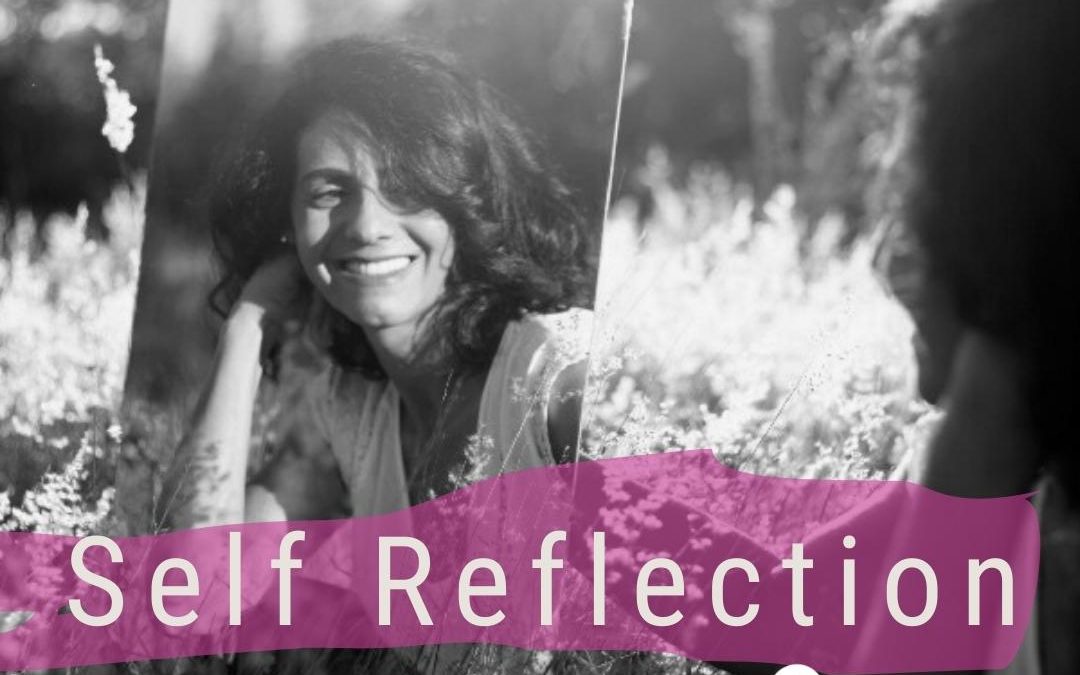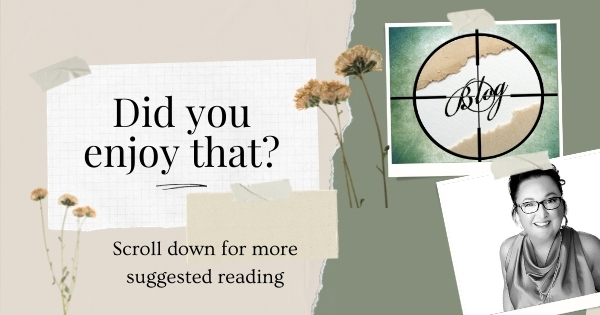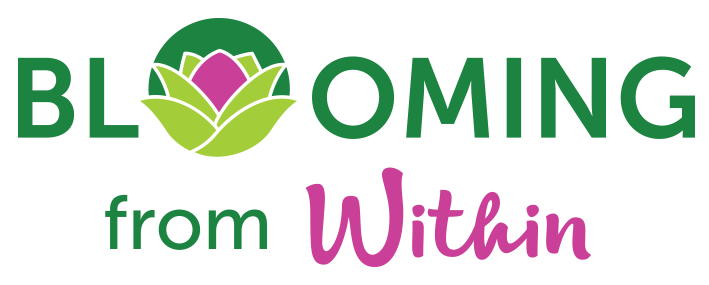
6 Tips To Self Reflect
A Little Look Within
Self Reflection enables you to face the awkward, uncomfortable and dysfunctional aspects in your life can change your life!
I have multiple conversations in clinic every week with clients who have moments, and even periods of time, where they feel stuck? Perhaps this immersion into darkness only lasts for a couple of hours, or worse, the stuck lasts several days. Some report that it extends out to weeks and gasp, maybe months!
There’s a common denominator for nearly everyone I see — they don’t know why they are stuck.
I talk to these clients about the need for real honesty with yourself, in order to seek a deeper understanding of that close and very personal relationship called ‘me’ or ‘myself’. Diving deep into the relationship with yourself can support you to overcome sub conscious habits that restrict or inhibit you to live your best life.
If you’re nodding your head then self reflection might just be the thing you’re looking for.
Self reflection is not an activity to beat yourself up. Nor is it designed to instigate shame, blame or guilt yourself. And let’s continue with a bit more honesty and agree, that when you first actively begin to explore yourself, it can feel a little uncomfortable — if you allow it.
Self Reflection is defined by the Cambridge dictionary as
“a serious thought regarding your actions”.
In other words you’ve got to dig for the good stuff. For example for you to return to your heart space and perceive what worked well or what didn’t?
Self Reflection is a process of observing yourself. This includes your feelings, thoughts and actions. It’s a process that requires being honest with yourself and should not ignite negativity of self sabotaging behaviour of shame, blame, or guilt.
Self Reflection requires a couple of things in order to achieve a positive outcome. You require courage to explore your darkness as you search for your hidden treasure. This includes your flaws, mistakes and reprimands. Your darkness hides the quirks in your values and belief system. Your darkness hides your strength by running a vulnerability based survival behavioural program.
It means you have to be prepared to accept yourself and get the hell out of your head and step down into your heart space. Connecting into your heart space, you are accessing your innate wisdom. You are activating your intuition and perception of life from a space of love. When you disconnnect from all that over thinking, you are actually stepping back into your heart space.
Allowing yourself to be willing to explore within incorporates the need to embrace six ‘self’ attributes.
These include:
- Self-confidence —embracing that feeling of trust of your own abilities, qualities and judgement.
2. Self-image — how you see or perceive your abilities, appearance and personability.
3. Self-Worth — sense of your own worth or value as a person.
4. Self-Respect — pride & confidence in yourself.
5. Self-Belief — the belief that you can do things well.
6. Self-Esteem — confidence in your worth & abilities.
Self Reflection is therefore a personal growth tool which allows you to pause and determine how well you’re travelling your journey path. It’s so easy to reflect on your life with a negative filter like overthinking, worry or fear. Your nervous system drives this defensive type of mental based energy.
Self reflection can be used as a tool which supports you to evaluate, and celebrate what you have achieved in your life. With a little kindness for yourself, self reflection can support you to step out of self sabotaging patterns whereby negativity swirls around inside your head.
You can do this be using the power of reframing your perceived failures, simply as lessons not yet fully learned. In turn this creates a positive energy of acceptance and allows you to shift gears or direction to achieve success in the future.
So let’s explore what Self Reflection can do for you!
So let’s explore what Self Reflection can do for you!

Tip #1 Be Honest With Yourself
Self reflection is an invitation to be honest with yourself about how things are going in your life. Your observation should simply assess your behaviour during your experiences, in terms of your values and beliefs.
Are you aligned to your core values?

Tip #2 Observe your behavioural patterns
I invite you to gently lay down the need to judge yourself on this one and simply look at whether the same trigger consistently arises for you to address. This creates an opportunity to become aware of the habits that best support you to live your best life, or address the ones that are holding you back.

Tip #3 Understand Your Core Values
From the persepctive of Self Relfection and understanding your core values means reaffirming assessing what is important in your life.
Assessing your values (because some may change throughout your life as you mature) is like maintaining and re-affirming your inner compass to always point you in the direction of your true north.

Tip #4 Be Kind & Gentle!
Self reflection isn’t intended nor designed to beat yourself up about what has happened doesn’t change your experiences. All this does is make you feel like crap.
Remember to not use why questions, because they only leave you looking in the rearview mirror of the journey you’re taking. You need to ask what questions which enable you to open up to a different reality or version of your truth.

Tip #5 Be Forgiving
Self Reflection should encourage you to be gentle with yourself, especially when you don’t meet your expectations, don’t get it right, or completely mess it up.
We all make mistakes.
This is why reframing thoughts and feelings is so vital. Remember that our expectations are often unrealistic and set you up for a perception of failure or fear of not being perfect.

Tip #6 Keep Track Of Your reflections
Capture your observations, thoughts, feelings and whatever burns up your internal barometer in a journal. This enables you to monitor change over time. It helps you map the evidence of your success, or further identify where you can make small adjustments along the way to living your best life.
So Self-Reflection is really like a form of internl auditing.
It’s just like placing your thoughts and feelings in front of a mirror, and being able to examine what the heck has been going on. The reflection enables you to examine what is seeping out of the cracks or what has arisen from the dark depths of your sub conscious. As part of your internal audit, instead of going straight into reaction mode, you can choose to become curious and explore why certain emotional responses arise under specific conditions, or be triggered by specific places or people.
Self reflection is a very useful tool, especially if you’re trying to manifest that next big thing in your life. Perhaps you’re using affirmations or the law of attraction and you’re not quite reaching the desired outcome you seek. Self reflection enables you to look at various aspects of your life where you may be running a hidden sabotage pattern.
Self-reflection is a tool that instantly brings you into the present moment because it forces you to explore how am I feeling about x?
It’s a particularly useful strategy if you know you’re about to face something that may re-trigger stress such as a work situation or family gathering. Additionally it’s a useful tool when you’re studying or working on a project as it supports you to measure actual success and celebrate that!
So where in your life can self-reflection support you?
Let’s begin with your relationship with yourself.
We all know that knowledge is power. When you can acknowledge how a person, place, or thing can push your buttons or stress you out, you can take action to defuse the stress trigger. The relationship you have with yourself needs to be based in self love in order to manifest positivity and productivity.
If you waste your energy and time with the negativity of shame, blame, guilt, judgement, or even resentment you’re wasting your life. This is because negativity stifles your energy to thrive and shifts you into a space of survival, in other words flight or fight.
The relationship you have with yourself is therefore vital in order to thrive in your life. The person who looks back at you every morning in the mirror is going to be the most important relationship you have in your life. It’s imperative to therefore consciously assess where you perceive any weakness or areas for improvement and this starts with where does your negativity spring up?
What pushes your buttons? What trips you up? What causes you to fall or go splat on your face? What fucks you up?
When you can sit quietly with yourself and honestly replay a stressful situation, accepting the flourish of emotions that may have transpired as a component of your reaction (rather than response) you are creating an opportunity for growth. It’s a choice point when you explore this quiet space because you get to decide how that reaction made you feel afterwards.
You get to decide whether you might do it differently. You also get to explore where that reaction came from so that you begin to understand yourself on a far deeper level.

Want to read more like this?
Can You Risk Not Stepping Up To Mother yourself? – Click here
How To Stop Making Excuses & Start Living Your Best Life – Click here
Healing Emotions Hurt More Than The Physical Wounds – Click Here
About Karen
Change Facilitator
Karen Humphries is a Kinesiology Practitioner, Health & Business Coach, LEAP & NES Practitioner, and self-confessed laughaholic. She is an avid Breast Cancer Advocate residing in Gippsland Victoria Australia. She loves being of service to the world with her humorous and positive approach to life, encouraging people to ‘choose to change and bloom from within.’

